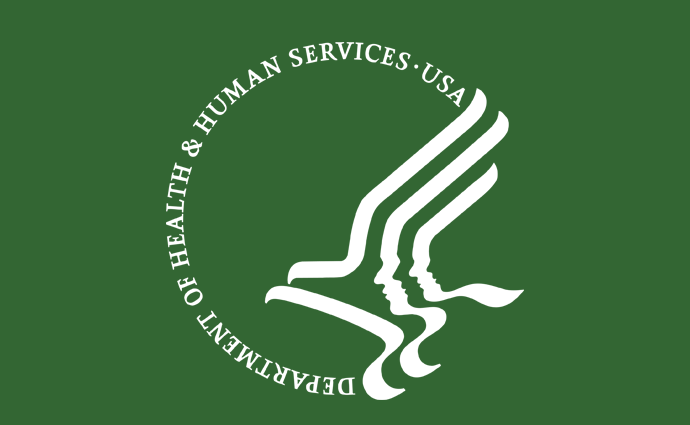HHS finalizes 340B Administrative Dispute Resolution process
A new rule from HHS finalizes an Administrative Dispute Resolution process, which allows covered entities to address disputes with drug companies.

Source: Department of Health & Human Services/Xtelligent Healthcare Media
- A new rule from HHS finalizes a revised Administrative Dispute Resolution (ADR) process under the 340B Drug Pricing Program (340B), which will allow covered entities to address disputes with pharmaceutical companies.
Hospitals and other covered entities have been at odds with the pharmaceutical companies that provide discounted drugs under 340B.
The program is intended to help safety-net healthcare providers stretch financial resources to reach more vulnerable patients. However, pharmaceutical companies have said 340B has grown beyond its original intent, with disputes arising about what type of hospital pharmacies can dispense the discounted drugs. Meanwhile, hospitals and other covered entities have been fighting reimbursement cuts to the program.
The rule from HHS establishes the ADR process that enables covered entities and pharmaceutical companies to bring claims before a panel. The panel will consist of subject matter experts within the Office of Pharmacy Affairs within the Health Resources and Services Administration (HRSA).
The 340B ADR process will address claims brought by covered entities that they have been overcharged for eligible outpatient drugs by pharmaceutical manufacturers. Additionally, manufacturers can bring claims to the process if they discover a covered entity violated 340B through a prohibition on diversion or duplicate discounts.
READ MORE: How Many Medicare Part D Claims Are Subject to 340B Discounts?
HHS emphasizes in the rule that the process is “an administrative process designed to assist covered entities and manufacturers in resolving disputes regarding overcharging, duplicate discounts, or diversion, as outlined in statute.”
“This 340B ADR process is also designed to provide stakeholders the opportunity to have disputes evaluated in a timely, consistent, and fair and equitable manner,” the rule states.
Historically, HHS has encouraged covered entities and pharmaceutical companies to resolve conflicts related to overcharging, duplicate discounts, and diversion. However, the new 340B ADR process provides an avenue when good faith efforts have been exhausted.
HHS issued a final rule in 2020 to begin implementing an ADR process within 340B. But HSRA encountered “policy and operational challenges,” according to the latest final rule. For example, HHS says potential petitioners included safety-net providers in under-resourced communities who lacked the resources to undertake the original ADR process despite it being in their best interest.
The original process also established a minimum threshold of $25,000 or where the equitable relief sought will likely have a value of more than $25,000 for petitions to be filed.
READ MORE: CMS Will Issue OPPS Providers Lump-Sum Payments to Remedy 340B Losses
The revised 340B ADR process is designed to overcome these challenges by being “more accessible, administratively feasible and timely than the 2020 final rule.”
“HHS believes that for the ADR process to be workable, it needs to be accessible. HHS recognizes that many covered entities are small, community-based organizations with limited means. These covered entities may not have the financial resources to hire an attorney to navigate the complex [Civil Procedure] and [Federal Rules of Evidence], requirements and engage in a lengthy, trial-like process, as envisioned in the 2020 final rule.
Additionally, the revised 340B ADR process also requires parties to undergo good faith efforts prior to filing disputes through the process. HHS says these efforts have been fruitful in the past, and manufacturers have not had a significant number of disputes thanks to the success of good-faith-resolution efforts. Manufacturers must also conduct an audit of a covered entity prior to filing an ADR claim alleging a violation.
The final rule also establishes an appeals or reconsideration process option for both parties. Initial decisions must be made within one year of submission of claims to the ADR process.
In a statement, the American Hospital Association’s General Counsel Chad Golder said, “The Administration’s final rule for the 340B drug pricing program administrative dispute resolution (ADR) process is an important step in ensuring the integrity of the 340B program. The final rule contains several important process improvements, including a clear timeline for when ADR decisions must be made and an opportunity for reconsideration when parties are dissatisfied with the initial ADR decision. The AHA is particularly pleased that the final rule makes clear that an overcharge claim includes instances where a drug company has limited a hospital’s ability to purchase 340B drugs at or below the 340B ceiling price. This rule will help hold drug companies accountable for their rampant abuses of the 340B program and the patients it serves.”
READ MORE: HHS Proposes Changes to 340B Administrative Dispute Resolution
340B Health also praised the final rule, saying they are “particularly encouraged by the final rule clarifying that a covered entity’s ADR claims can include accusations that a drug company has limited the ability to purchase drugs at or below the 340B ceiling price and removing a proposed amendment to block ADR consideration of a claim similar to an issue pending in federal court.”
However, the trade group still urged HRSA to exclude Medicaid managed care claims from the ADR process, direct panels to publish full findings, and impose a 120-day time frame for decisions.
